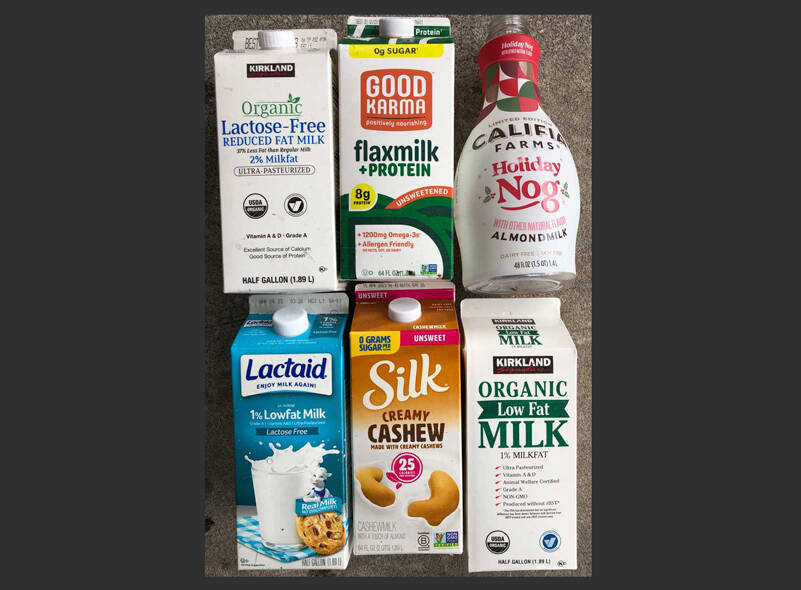By Morf Morford, Tacoma Daily Index
Milk, drink, beverage, nog or grog – does it matter what we call it?
Back in the days when men were men and women were women, most of us knew, or thought we knew, what basic words meant.
It’s complicated
It turns out that many things, from age to water to work and gender identity are not as simple and clear as some of us once thought, or believed, or even hoped, they were.
If you follow business news, you will find that, as with the larger culture, every area is a potential point of contention. Who owns what and under what conditions and for how long haunt virtually every product and brand name from Disney to entire product lines.
Depending on your preferences, you could blame it on “woke” sensibilities or lawyers that get paid by the word, or grandstanding politicians, but the bottom line is that everything, from a poorly chosen phrase to what we have for breakfast is suddenly a legal/social quagmire. There is no neutral territory, no DMZ, it appears, in today’s “culture wars” about any and everything.
And what could strike deeper into the heart of the American identity than milk?
Look and feel
Several years ago many software copyright lawsuits were based on the “look and feel” of any given product. Was a word processing program or graphic image too similar to a pre-existing one? How “different” did any given product need to be to NOT be a copy? Can companies really “own” a term like “spell check” or “U” (which stood for “underline”)?
I distinctly remember several years ago when IBM sought to copyright the number “2” (as part of its brand family).
Copyrights and patent control stifled production and development and kept prices artificially high for years.
The “milk” question is not so different.
What makes milk “milk”?
Does “real” milk come from cows? Or goats? Or sheep? Or, in the Middle East, camels? To meet a legal definition, does milk have to come from a four-legged mammal? Does milk have to be white? (Except for chocolate milk, of course). Does “milk” need to be white liquid, slightly more dense than water?
Like the software legal landscape of a decade or so ago, the arguments quickly devolve into the absurd.
Is it oil?
On a related topic, what is “oil”?
We have 10W-30 motor oil, baby oil, olive oil and a thousand more – some for automobile engines, some for dry skin and some for cooking, and some for lubricating rusty machine parts. Should they all fit under the name “oil”?
Do we need a different term for each use or source? Or do we keep it simple and assign a near-generic word for a category of texture?
Maybe we could do the same with “milk”.
Language is confusing, complex and often contradictory. As is life. And cooking.
Fake cheese?
Some describe cheese made from anything except dairy products as “fake”. I’m not sure what their criteria for “fake” might be. Cheese, from any source, is the product of fermentation. It is the process of fermentation that distinguishes the liquid form from the more solid form.
So, in a sense, all cheese is, by some definition, “fake”; it is not in its original natural state.
If it is not the process, maybe it is the source. How are oats, almonds or soy products different from animal secretions?
I’m not an agricultural scientist or nutritional specialist, and maybe it’s just me, but somehow “animal secretions” does not sound very appetizing. I can see why the dairy industry does not use “animal secretions” in its marketing campaigns.
Find something more important to talk about
As usual, this argument says more about us than it does about the topic.
We seem willing, even eager to fight, argue and litigate over anything these days. Public tantrums and pity parties seem to get some of us elected and are a steady stream of income for many.
I think we all need a nap and a large glass of milk of magnesia.






